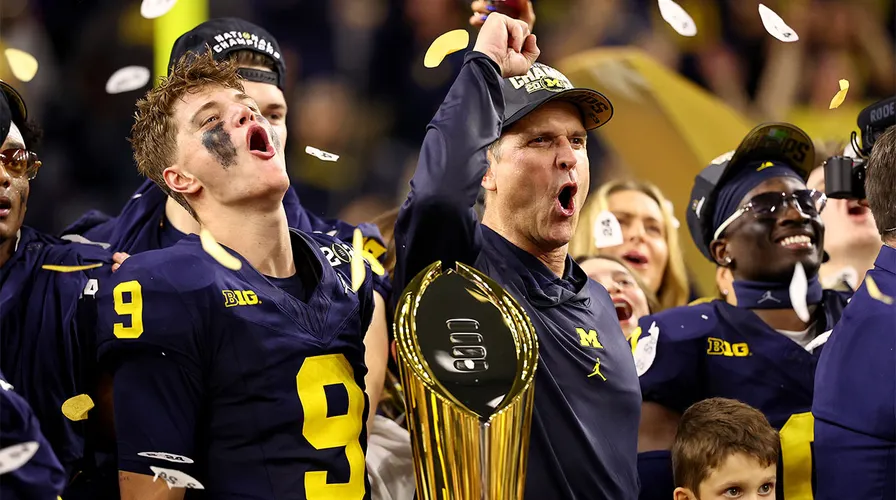NORMAN — Zach Schmit doesn’t want this to be the story of his final collegiate season.
He’d rather not be among the few bright spots in a season of struggles for OU football.
“If I could be 0 for 7 and the team could be 10-0 right now, I would check that box in a heartbeat,” the Sooners kicker said this week. “I am dead serious. … It breaks my heart for those young guys and the seniors with me that we’ve had this type of hard season.”
But Schmit is making the most of the circumstances he can control.
After serving as the No. 1 kicker in the previous two seasons, Schmit lost his job going into this season.
He was beaten out in preseason camp by Florida State transfer Tyler Keltner and Schmit was relegated to serving as a kickoff specialist.
It could’ve been convenient for Schmit to walk away.
He had already played four seasons and graduated in May with a degree in chemical engineering.
The past two seasons, where he’d had stretches of success but plenty of struggles as well, had taken a toll on him mentally.
He’d missed six field goals in each of those seasons and the Sooners went searching for a potential replacement.
“The past two years have been really rough, not only for myself but the team,” Schmit said. “I’m not really a big individual guy with this sport, but for me the past two years really hurt myself knowing how much I dragged the team down a little bit, in my own eyes.”
But walking away was never an option for the Bishop McGuinness product.
“I have never been a quitter, I guess,” Schmit said. “My parents always raised me to never quit, never stop. If I’m committed to something, which I was committed to this team, I was not ever going to walk away. If my job was kickoffs and kicking it through the back of the end zone for touchbacks … I was going to try to do that to the best of my ability regardless if I was going to be doing the field-goal kicking or not.”
Accepting that fate might’ve been one of the keys to unlocking success.
“The past two years have been trying to place the ball between the uprights, so to speak, and I wasn’t really using my technique correctly,” Schmit said. “I felt like, maybe not the pressure so to speak, but I didn’t want to shank a kick, I guess.
“So this year, I told myself I’ve got the confidence. I know I have the ability, just swing for the fences and it’s gonna come.”
But Keltner won the job initially and had success.
In late September, though, an illness kept Keltner out at Auburn, and Schmit made the most of his opportunity, making both of his field goal chances in the Sooners’ 27-21 win.
Keltner returned for the Texas game, but after missing one of his two field goals in the Cotton Bowl, the competition was reopened the next week.
This time, it was Schmit coming out on top.
And now, there wasn’t the sometimes overwhelming pressure to be perfect.
Doug Deakin, the Sooners’ first-year special teams analyst, has worked to take that pressure off Schmit and the other specialists.
“He lets us know it’s OK to make mistakes as a specialist,” Schmit said of Deakin. “It is OK to not be perfect.”
It was a message that Schmit needed.
While a quarterback missing a throw, a lineman missing a block or a linebacker missing a tackle might almost immediately get a chance at redemption, sometimes those opportunities don’t come quickly for special teams players.
“As a kicker if I miss a kick in the game, next thing I know the game’s coming down and the team loses by three points, and it just crushes you,” Schmit said.
“I, myself, am a perfectionist both in sports and in school and basically everything I try to do. So it was very hard for me to get away from that perfectionist attitude. … Trust me, I want to go out there and make every single kick, but I also know that if it doesn’t go my way, that is OK. People are going to be upset, but people are going to be upset with you no matter what you do, whether it’s football, work, just anything in life.”
It’s not that Deakin is soft on the specialists.
“He also holds us accountable,” Schmit said. “He makes sure that we know we have to be focused and attentive in everything.”
And Schmit has learned how to balance that pressure, how to turn his focus on and off during games and practices.
It has helped Schmit stay ready for big moments, like the one he faced at the end of the first half in Saturday’s eventual 30-23 loss to Missouri.
Schmit had been hoping for a 50-plus yard chance.
“I missed, I think, three in my career here in college, so I’ve been itching to get one,” Schmit said. “I didn’t know if that opportunity was gonna come.”
But it did, and Schmit took advantage, nailing a 56-yarder on the final play before halftime.
The kick was tied for the third longest in school history. Only Tony DiRienzo and Uwe von Schamann have kicked longer field goals in Sooners history.
Brent Venables was prepared to put an even bigger kick in Schmit’s hands.
OU’s coach said after the game he was comfortable giving Schmit an opportunity of 62 or 63 yards if there would’ve been a chance late.
But Jackson Arnold’s fumble and Missouri’s subsequent return ended the chance for a storybook finish to the game for Schmit and the Sooners.
While Schmit might want to trade in his individual success for team glory, he’s also enjoying the perfection (7 for 7 field goals, 12 of 12 extra points) that has come with the help of accepting imperfection.
So are his teammates.
“Just seeing his success and show all the work that he’s been putting in just puts a smile on my face and makes everybody just so happy,” Sooners punter Luke Elzinga said. “He’s had a journey. I’m happy he’s getting the credit that he deserves now.”


